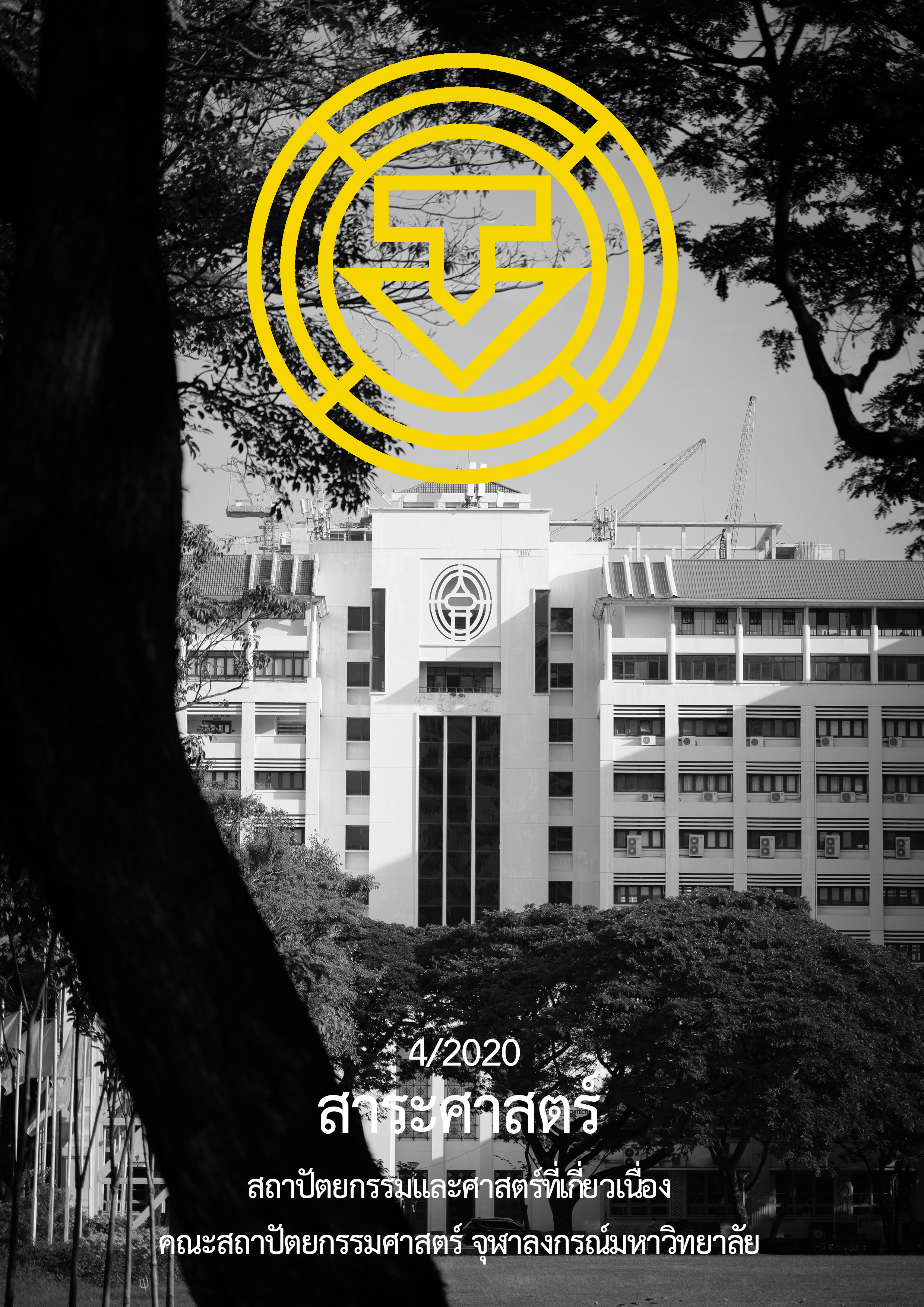The Possibility to Offer a Master’s Degree Course in Industrial Design
Main Article Content
Abstract
According to Thailand’s national strategic plan for 2017-2036, one of its focuses is on research and innovation to answer the needs of the country, society and private sector with commercial possibilities, and most importantly, to achieve value creation in research. Measures adopted to support and promote research and innovation center in order to accommodate the 10 targeted industries leads to the demand in employee competencies, while the economic recessed in 2020 also prompts the next generation to seek a reskill for better job opportunities. Department of Industrial Design, therefore, plans to offer a Master’s degree in Industrial Design to respond to the above criteria.
A study in the possibility to offer a Master’s degree course in Industrial Design is a research project based on a survey of associated parties including university students, younger workforce and representatives from both the government and private sectors with a need to recruit new graduates. The goal is to explore the needs of students and graduates in furthering their study and acquiring a Master’s degree in Industrial Design as well as those of the government and private sector in opening a new Master’s degree program in Industrial Design. The research team gathers primary quantitative data by launching a survey for those preferring to do an electronic survey which involves 259 participants, and qualitative research which includes meetings and interviews with 15 representatives from both the government and private sector and 23 students. Four meetings were arranged in July 2018. The program structure requires a total of 36 credits within a period of 1.5 years.
According to the analysis, it can be concluded that 1) the drafted course outline is in accordance with the national strategic plan. It also answers to the need of the industrial 4.0 development plan, most notably, design thinking as a strategy for innovation. 2) it responds to labour market trend in the next 2-5 years which will look for a designer with an ability to design for his/her target customers' specific needs and preferences and management thinking, and it also finds out that the outside organizations are willing to support the program by offering scholarships for their employees and/or recruit a job candidate directly from the program. 3) the integrated course structure which involves real industry project, internship and international research project as well as the program name, period and course outline respond to the real needs 4) There is a demand for short courses. 5) Certain expectations regarding applying for a Master’s degree in Industrial Design include gaining in-depth knowledge in Design Management and creating connection with different levels in an organization in order to acquire an insight into specialized design and an opportunity for an internship or work placement.
Article Details
References
กรวิก ตนักษวานนท์. 8 กรกฎาคม 2561. สัมภาษณ์.
กฤตภาส ศาลาพรชัย. 8 กรกฎาคม 2561. สัมภาษณ์.
กฤษณะ ธนะธนิต. นายกสมาคมศิษย์เก่าคณะสถาปัตยกรรมศาสตร์ จุฬาลงกรณ์มหาวิทยาลัย. 3 กรกฎาคม 2561. สัมภาษณ์.
กิตติรัตน์ ปิติพานิช. รักษาการผู้อำนวยการศูนย์สร้างสรรค์งานออกแบบ. 8 กรกฎาคม 2561. สัมภาษณ์.
โกสินทร์ วิระพรสวรรค์. กรรมการ บริษัท แปลนครีเอชันส์ จำกัด. 3 กรกฎาคม 2561. สัมภาษณ์.
จินต์ภาณี สุขวัฒโน. 8 กรกฎาคม 2561. สัมภาษณ์.
ชฏาพร อภิโชคเจริญชัย. 8 กรกฎาคม 2561. สัมภาษณ์.
ชัชชัย วัฒนพรพงษ์สุข. 8 กรกฎาคม 2561. สัมภาษณ์.
ชูพรรณ โกวานิชย์. รองกรรมการผู้จัดการอาวุโส บริษัท เมืองไทยประกันภัย จำกัด (มหาชน). 3 กรกฎาคม 2561. สัมภาษณ์.
ญาโณทัย ตรีรัตน์โชติกุล. 8 กรกฎาคม 2561. สัมภาษณ์.
ณัชชา พานิชรุ่งโรจน์. 8 กรกฎาคม 2561. สัมภาษณ์.
ณัฏฐา เกียรติสกุลเดชา. 8 กรกฎาคม 2561. สัมภาษณ์.
เทวินทร์ วรรณะบำรุง. ผู้ชำนาญการพิเศษ บริษัท เอสซีจี-ซีเมนต์ ผลิตภัณฑ์ก่อสร้าง จำกัด. 3 กรกฎาคม 2561. สัมภาษณ์.
ธัญรดี ศรีอุดมพร. 8 กรกฎาคม 2561. สัมภาษณ์.
นภสวรรณ ประดับการ. 8 กรกฎาคม 2561. สัมภาษณ์.
นลินี ทองแท้. อาจารย์คณะศิลปกรรมศาสตร์ มหาวิทยาลัยกรุงเทพ. 3 กรกฎาคม 2561. สัมภาษณ์.
นวลพรรณ อุดมไพบูลย์สุข. 8 กรกฎาคม 2561. สัมภาษณ์.
เบญญา หมึกทอง. นักออกแบบ บริษัท ไฟร์ วัน วัน จำกัด. 8 กรกฎาคม 2561. สัมภาษณ์.
ปกรณ์ สันติสุนทรกุล. กรรมการ บริษัท เด็กดี อินเตอร์แอคทีฟ จำกัด. 8 กรกฎาคม 2561. สัมภาษณ์.
ปฐมพงศ์ ไชยศรี. 8 กรกฎาคม 2561. สัมภาษณ์.
ไปรมา อิศรเสนา ณ อยุธยา. (2558). กระบวนการและวิธีการออกแบบบริการ. กรุงเทพมหานคร: ศูนย์สร้างสรรค์งานออกแบบ.
พงศ์พันธ์ แก้วตาทิพย์. ผู้อำนวยการฝ่ายอุตสาหการ สำนักงานกองทุนสนับสนุนงานวิจัย. 8 กรกฎาคม 2561. สัมภาษณ์.
พงศ์พันธ์ อนันต์วรณิชย์. (2562). การคิดสร้างสรรค์. กรุงเทพมหานคร: บริษัท สามเจริญพาณิชย์ จำกัด.
พรชัย แป้นคุ้มญาติ. 8 กรกฎาคม 2561. สัมภาษณ์.
แพรวลดา บุญบุตร. นักออกแบบ วิฟดีไซน์สตูดิโอ. 8 กรกฎาคม 2561. สัมภาษณ์.
ภควดี เวสุวรรณ์. 8 กรกฎาคม 2561. สัมภาษณ์.
มยุรี ภาคลำเจียก. วิทยากรสมาคมการบรรจุภัณฑ์ไทย. 3 กรกฎาคม 2561. สัมภาษณ์.
ลภัสรดา เอื้อชลิตนุกุล. 8 กรกฎาคม 2561. สัมภาษณ์.
วรางคณา ลิมศุภนาค. 8 กรกฎาคม 2561. สัมภาษณ์.
วศินี ฉันทากร. 8 กรกฎาคม 2561. สัมภาษณ์.
วีณา พันธุ์ธีรานุรักษ์. 8 กรกฎาคม 2561. สัมภาษณ์.
สถามน มัทนศรุต. หัวหน้าหน่วยการตลาดองค์กร บริษัท โมเดอร์นฟอร์มกรุ๊ป จำกัด (มหาชน). 8 กรกฎาคม 2561. สัมภาษณ์.
สุวิมล ศิลปวิทยาดิลก. อาจารย์พิเศษสถาบันเทคโนโลยีพระจอมเกล้าเจ้าคุณทหารลาดกระบัง. 8 กรกฎาคม 2561. สัมภาษณ์.
หริพันธ์ วงษ์สุวรรณ. นักออกแบบ บริษัท อีสโฮม จำกัด. 8 กรกฎาคม 2561. สัมภาษณ์.
อดิพล ดีวงกิจ. 8 กรกฎาคม 2561. สัมภาษณ์.
อภิรัตน์ หวานชะเอม. สถาปนิก บริษัท บีคอน อินเตอร์เฟส จำกัด. 8 กรกฎาคม 2561. สัมภาษณ์.
อมรชัย นาคศุภมิตร. ที่ปรึกษากิตติมศักดิ์สมาคมอุตสาหกรรมของเล่นไทย. 3 กรกฎาคม 2561. สัมภาษณ์.
อรุณี ผาสุข. นักออกแบบ บริษัท ทิกกี้ คอร์ป จำกัด. 8 กรกฎาคม 2561. สัมภาษณ์.
อุปถัมถ์ นิสิตสุขเจริญ. กรรมการผู้จัดการ บริษัท ไรท์แมน จำกัด. 3 กรกฎาคม 2561. สัมภาษณ์.


